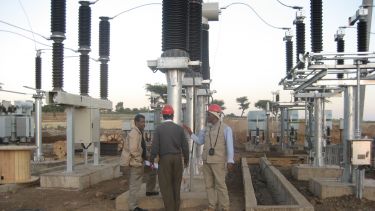Community Energy Systems and Sustainable Energy Transitions in Ethiopia, Malawi and Mozambique
A transition to sustainable energy needs to prioritise the social needs of excluded and disadvantaged groups. Responding to people's energy needs requires institutional, organisational, and financial models of energy delivery that prioritise social benefits over profits.

This project explores the potential of Community Energy Systems to accelerate inclusive and clean energy transitions in Ethiopia, Malawi and Mozambique. These three countries face enormous energy challenges, in very diverse contexts.
In 2018, rates of access to electricity in Ethiopia, Malawi, and Mozambique were 44%, 13%, and 27% respectively. Despite recent improvements, 97 million people living in these countries still lack power. Moreover, progress towards clean cooking is too slow to meet international objectives for energy access. Only 2-3% of the population in Ethiopia, Malawi or Mozambique has access to clean fuels. These figures mean that almost 150 million people living in these countries rely on biomass or charcoal to cover their daily energy needs.
A transition to sustainable energy needs to prioritise the social needs of excluded and disadvantaged groups. Responding to people's energy needs requires institutional, organisational, and financial models of energy delivery that prioritise social benefits over profits.
The challenge is that there is a lack of data on Community Energy Systems and energy systems more generally in East Africa and research and interventions often rely on technological blueprints that do not fit the institutional and material conditions in which Community Energy Systems operate.
Moreover, conceptualisations of communities as harmonious, homogenous units obscure the multiple forms of exclusion that influence energy access and infrastructure management. There is already an international consensus about the need for disaggregated data to understand the gender gap in energy access. Our project advocates considering the intersection of gender with multiple social characteristics that may also lead to exclusion from energy services (such as age, sexual orientation, ethnicity, place of origin).
The project brings together researchers from political science, human geography, engineering and technology providers to understand the role of Community Energy Systems in advancing a just sustainable energy transition that will bridge the energy access gap in East Africa.
The researchers will deliver recommendations to improve the delivery of Community Energy Systems in situ, which will directly benefit low-income communities. The recommendations will provide country-specific evidence on what works for energy access, which will benefit governmental and non-governmental actors working to advance energy access in Ethiopia, Malawi, and Mozambique. It will develop new ways of thinking about community energy, which will benefit Official Development Assistance (ODA)-related organisations that question dominant paradigms on energy and development.
This project was funded by the ESRC and will run from 2020-2023.